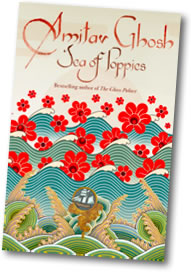I have worked as a product manager for the past three years. If you've read books about product management but have never worked as a PM, you have a rosy picture of what a PM does.
So I wanted to share a few traps that await you when you become a PM and how you can avoid them.
1. Don't be a warm body
When you join a team as a PM, especially in the initial stages, you can't choose your product. Your seniors assigns a product for you. Once you come upto speed, you notice that the prodcut doesn't make sense. Or atleast it is not the best use of your time and company resources.
How can this happen? -
A company gets started with a single revenue generating product. They achieve product-market fit with that product. They start selling the product and hire hoping the good times continue. Then they do well and sature the market for that product. Now the company wants to build new products to keep growing and sustain their valuations. For that they do some brainstorming, listen to customers, think of the market to come up with new products.
They confirm it with a few customers and they respond well. They get a product built and deliver to this customer. They are able to sell this product to a few customers but they can't grow it anymore. This gets assigned to a new PM, you.
You realize this is not a good product or not a product that can grow. Here I'm not talking about product trying to solve a real problem but doesn't solve it completely. Here I'm talking about products you know there is no market. i.e. you are not solving anybody's problem.
Ultimately, it is your job as the PM of the product to own it. The sooner you can raise the alarm about this, the faster the company can pivot.
But the director has this product in his portfolio and he needs someone to continue building it. You speak to him and tell what you think. You suggest some new products to grow that business. Those are risky ideas but if they succeed there is a chance to grow the business. They need bigger budget. All valid reasons for why we cannot work on those new ideas. But since he has a budget to spend, it compels you to work on ideas which you know don't amount to much.
What can you do when you find yourself in this trap?
- Once you realize this is a dead product, you owe it to speak the truth to power.
- Create a deck or a document detailing your analysis and recommendations.
- Tell them what outcomes you can expect if you continue in the same path.
- Generate alternative ideas which you can persue/test out to meet the same objectives.
- Speak to other internal teams to get their reading of the situation.
- Include bytes from customers and internal folks about the situation.
- Use formal and informal forums to talk about what you found.
- Your goal is to get everyone to acknowledge the situation. Then drive towards making a change to the next promising idea.
Lots of times, everyone is busy to notice this. Ultimately, it is your job as the PM of the product to own it. The sooner you can raise the alarm about this, the faster the company can pivot.
Next, I will speak about how to the avoid the second trap - buying into the hype machine

